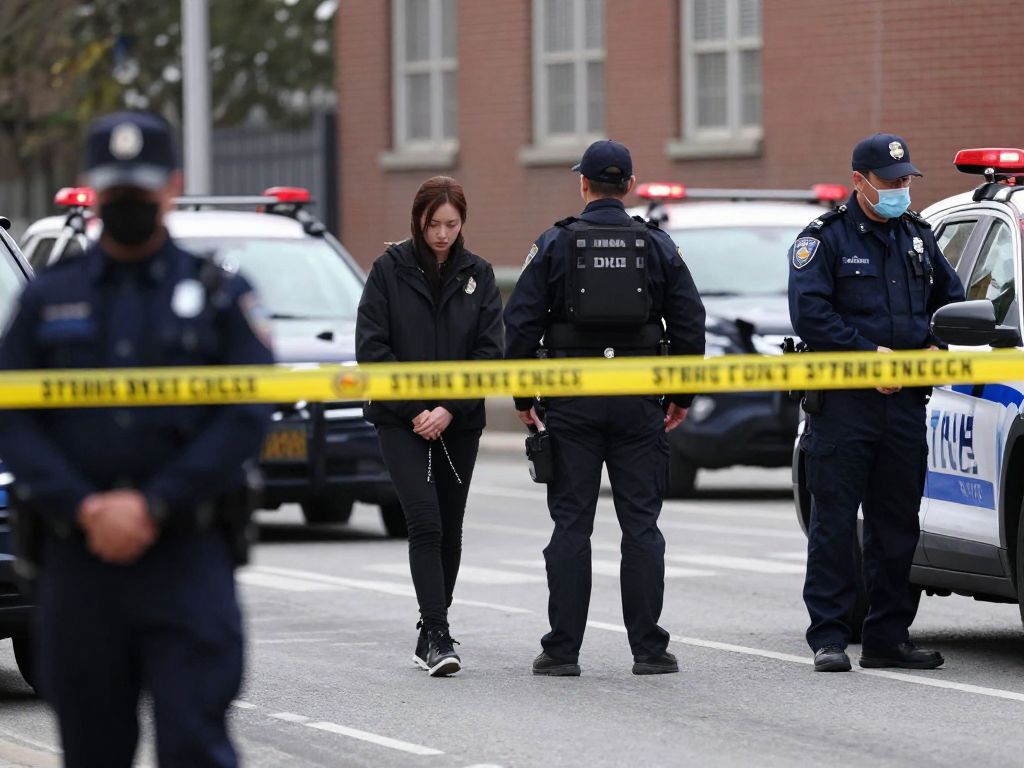News Summary
The University of Pennsylvania has reinstated $175 million in federal funding following its agreement to comply with the Trump administration’s policies regarding transgender athletes. In doing so, Penn will prevent transgender athletes from competing on women’s teams and erase records set by a prominent swimmer. This controversial move comes after warnings from the Department of Education regarding compliance with federal civil rights law. Critics argue the decision highlights broader issues of equity and inclusion in sports as well as the ongoing debate surrounding transgender participation.
Philadelphia, PA – The University of Pennsylvania (Penn) has restored $175 million in federal funding after conforming to the Trump administration’s policies regarding transgender athletes. This financial support was previously suspended as part of broader restrictions affecting transgender individuals’ participation in women’s sports.
The reinstatement of federal funding comes after Penn agreed to prevent transgender athletes from competing on female sports teams. As part of this agreement, the university is also required to erase records set by swimmer Lia Thomas, who has been prominent as a transgender athlete in collegiate sports.
Department of Education Secretary Linda McMahon emphasized that noncompliance with federal civil rights law could result in the loss of federal funding, a warning that the university took seriously. Consequently, Penn committed to revising its institutional policies to align with the new requirements and to enhance reporting mechanisms to avert future infractions.
The funding reinstated is critical as it supports major research initiatives at Penn, including projects focused on preventing hospital-acquired infections and drug screening for emerging viral illnesses. The agreement to comply with the Trump administration’s policies forms part of a larger trend regarding tighter regulations on transgender participation across various sectors, including education and the military.
Lia Thomas, a former swimmer at UPenn, gained national attention when she became the first openly transgender athlete to win an NCAA Division I championship title in 2022. However, a recent investigation by the Department of Education found that Penn had violated Title IX by allowing males to compete in women’s intercollegiate athletics. This violation prompted the requirement for Penn to adopt biology-based definitions of “male” and “female” in compliance with Title IX theories.
Penn President J. Larry Jameson has indicated that the university will issue an apology and provide support to female student-athletes who faced competitive disadvantages due to Thomas’s participation on the swim team. The White House had previously signaled that serious repercussions would follow if Penn failed to adhere to the established regulations.
Despite the restoration of funding, critics argue that research does not consistently support claims that transgender athletes hold significant advantages in competitive sports. The removal of Thomas’s records from the UPenn list of all-time women’s swimming achievements has raised further concerns about fairness and equity in athletic competitions.
The Trump administration’s policies have faced considerable backlash from LGBTQ+ advocacy groups, which argue that such regulations are discriminatory and not based on sound evidence. Other prestigious institutions like Harvard and Northwestern University have experienced significant criticism for their own policies related to discrimination, but Penn’s choice to comply aims to avoid potential cuts in federal funding.
As this situation unfolds, it raises concerns about the potential precedent set by the incorporation of federal mandates into university governance, particularly on nuanced topics such as gender identity in sports. The implications of Penn’s decision could reverberate through other academic institutions that might feel pressured to comply with similar demands in the future.
The ongoing debate surrounding transgender athlete participation is indicative of the broader societal discussions on equity, inclusion, and the rights of marginalized groups in sports and beyond. With the stakes high, the landscape of collegiate athletics continues to evolve amidst these legal, social, and ethical discussions.
Deeper Dive: News & Info About This Topic
HERE Resources
University of Pennsylvania Ends Transgender Women in Sports
Simone Biles Critiques Riley Gaines’ Anti-Trans Remarks
University of Pennsylvania Concludes Investigation on Transgender Swimmer
Philadelphia Schools Plan Major Restructuring to Address Enrollment Trends
University of Pennsylvania Revises Swimming Records Amid Controversy
University of Pennsylvania Criticized Over Title IX Settlement
University of Pennsylvania Settles with Trump Administration on Transgender Athlete Policy
Trump Administration Intensifies Title IX Scrutiny in Pennsylvania
University of Pennsylvania Bans Transgender Athletes from Women’s Sports
Philadelphia School District and Teachers’ Union Demand Increased Funding
Additional Resources
- The New York Times
- Wikipedia: Transgender in Sport
- ABC News
- Google Search: transgender athletes in collegiate sports
- CNN
- Google Scholar: transgender athletes fairness
- The Guardian
- Encyclopedia Britannica: Title IX
- Reuters
- Google News: University of Pennsylvania transgender athletes
Author: STAFF HERE PHILADELPHIA WRITER
The PHILADELPHIA STAFF WRITER represents the experienced team at HEREPhiladelphia.com, your go-to source for actionable local news and information in Philadelphia, Philadelphia County, and beyond. Specializing in "news you can use," we cover essential topics like product reviews for personal and business needs, local business directories, politics, real estate trends, neighborhood insights, and state news affecting the area—with deep expertise drawn from years of dedicated reporting and strong community input, including local press releases and business updates. We deliver top reporting on high-value events such as Mummers Parade, Philadelphia Flower Show, and Thanksgiving Day Parade. Our coverage extends to key organizations like the Greater Philadelphia Chamber of Commerce and United Way of Greater Philadelphia, plus leading businesses in telecommunications, food services, and healthcare that power the local economy such as Comcast, Aramark, and Children's Hospital of Philadelphia. As part of the broader HERE network, we provide comprehensive, credible insights into Pennsylvania's dynamic landscape.





